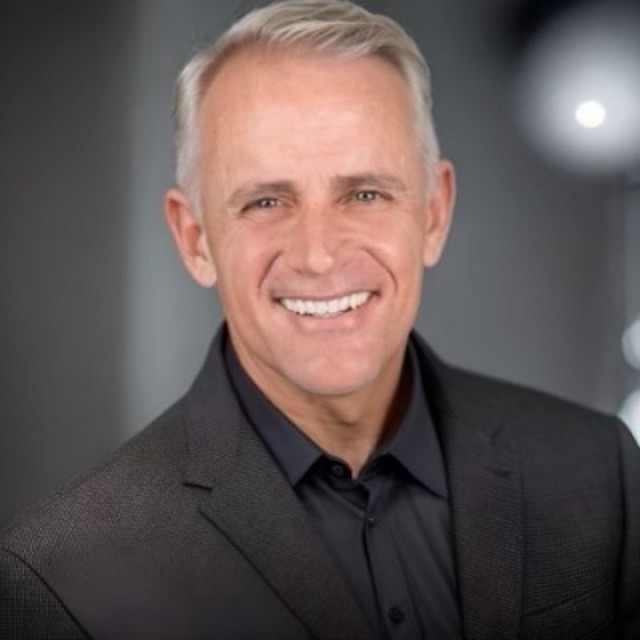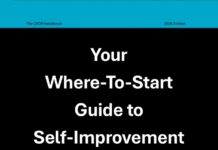Rowdy Oxford on Why Veterans Hold the Key to Building Stronger Civilian Institutions
(Isstories Editorial):- Jacksonville, North Carolina Sep 9, 2025 (Issuewire.com) – Rowdy Oxford, a seasoned leader in national security and emergency management, believes that the United States is overlooking one of its greatest untapped resources for strengthening civilian institutions: its veteran population. With decades of service and leadership experience, veterans represent a pool of talent uniquely equipped to guide businesses, government agencies, and community organizations toward greater resilience, discipline, and adaptability.
More on Isstories:
- Franchise Expert Reveals 17 “Hidden Gem” Franchise Opportunities for 2026 That Most Lists Overlook
- The Thornton Team Earns #1 Real Estate Team Ranking in Wheaton and Closes Record-Setting 2025
- Mentenna Launches AI-Powered Global Publishing Platform to Democratize Knowledge
- New Lesbian Memoir Launches Ahead of Valentine’s Day, Offering an Honest Look at Love After Heartbreak
- Curantis Solutions and WorldView Partner to Bring Faster, Clearer Workflows to Hospice and Palliative Care Teams
Oxford argues that the traditional narrative of veteran transition into civilian life has been framed too narrowly, often focusing on challenges rather than opportunities. “The conversation around veterans emphasizes what support they need,” he notes, “but what is often missed is what they can contribute. Veterans are not only looking for jobs but also bring tested leadership, strategic foresight, and the ability to make critical decisions under pressure. These qualities are exactly what civilian institutions need in a time of rapid change.”
At the core of Oxford’s perspective is the belief that veterans embody a mission-first mindset. Unlike many in the civilian workforce, service members are trained to think beyond personal success and prioritize the collective goal. This orientation, he explains, can help organizations build cultures that value collaboration over competition. In today’s fragmented landscape, where corporate silos and short-term thinking frequently undermine progress, the veteran mindset can be transformative.
Another strength veterans bring, according to Oxford, is their adaptability. Military service places individuals in constantly shifting environments, whether in combat zones, disaster relief efforts, or international peacekeeping missions. Veterans learn to evaluate situations quickly, improvise when resources are limited, and keep teams focused on outcomes despite uncertainty. “That ability to operate in ambiguity is critical for civilian institutions,” Oxford says. “Whether you’re running a business facing supply chain shocks or a local government responding to natural disasters, you need leaders who won’t freeze when the unexpected happens.”
Veterans also excel at building diverse teams that thrive under pressure. In the military, individuals from vastly different backgrounds must function as a unit, with cohesion often being the difference between success and failure. Rowdy Oxford points out that this experience translates directly to civilian organizations striving for inclusivity and high performance. “Veterans know how to find common ground quickly. They understand the stakes of unity, and they know how to bring out the strengths of every team member.”
Rowdy Oxford emphasizes that bringing veterans into civilian institutions is not about charity or symbolic gestures but about strengthening national resilience. He believes companies and agencies integrating veterans into leadership roles are better equipped to face crises and sustain long-term growth. “This is a strategic decision,” he stresses. “Veterans make organizations stronger, not just more patriotic.”
However, Oxford also acknowledges that institutions must rethink how they approach veterans. Too often, he says, hiring practices and organizational cultures fail to recognize or leverage military experience fully. “The resume of a veteran may not always look like a traditional corporate career path, but behind those years are experiences managing multi-million-dollar assets, leading diverse teams across continents, and making life-or-death decisions. Civilian institutions must learn to translate those skills into their own language.”
Oxford calls for more intentional partnerships between the public and private sectors to create pathways for veterans to enter civilian leadership roles. He suggests mentorship programs, cross-training initiatives, and leadership pipelines that treat veterans as assets rather than anomalies. In particular, he believes veterans should be positioned in operational roles, strategy, policy, and innovation.
The broader societal payoff, Oxford explains, extends beyond individual organizations. By integrating veterans into the fabric of civilian leadership, the nation cultivates a stronger, more cohesive social infrastructure. Veterans carry a sense of service that can inspire civic engagement, restore trust in institutions, and promote unity across divides. “At a time when polarization and fragmentation threaten the stability of our communities, veterans can serve as the bridge,” Oxford says.
Rowdy Oxford’s message is clear: veterans are not just beneficiaries of support but essential contributors to the strength of America’s civilian institutions. By recognizing and harnessing their skills, civilian organizations can gain leaders who can navigate complexity, unite people around common goals, and keep mission success at the forefront. For Oxford, it is less a matter of gratitude and more of strategy. “Veterans have already proven they can defend the nation,” he concludes. “Now it is time to let them help lead it forward.”
To learn more visit: https://rowdyoxford.com/
This article was originally published by IssueWire. Read the original article here.





















